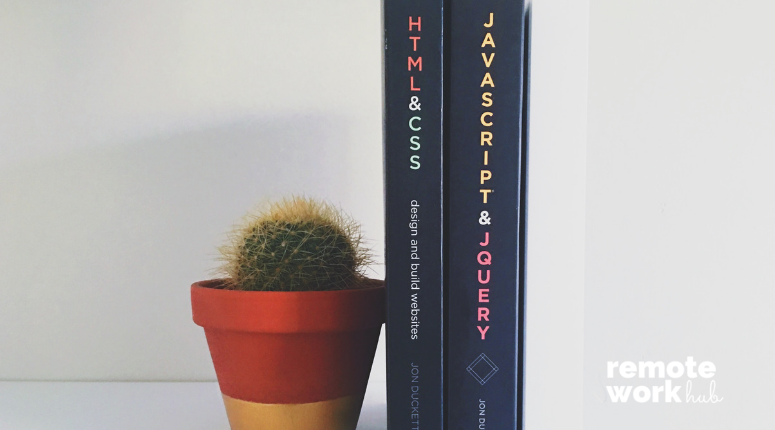
You don’t have to be a tech geek to learn this simple coding language and it can land you some great opportunities to work remotely.
We all know that HTML (HyperText Markup Language) is the language of the web. All websites that currently exist use HTML to define the layout of pages.
It’s true that other languages are evolving and will most likely replace HTML eventually. But for many years to come knowing and understanding HTML will still be very beneficial.
And the good news is, HTML is not difficult to learn – it’s not a complicated programming language, you simply mark-up text using ‘tags’. You can learn the basics of HTML in as little as 45 minutes.
In fact, just knowing the basics can be enough to solve simple content layout problems on web pages or in an email template. So although you might not use HTML on a daily basis, knowing just a little bit of HTML can still come in very handy … and potentially impress your employer.
And if you’re keen to learn everything there is to know about HTML so you can build your own website or prototype a web app, these skills can help you greatly when it comes to landing a remote job. Speak to remote workers in tech and many will tell you they started off by dabbling in their own side projects building websites and helping others solve their web page problems.
We all know that web development skills are in high demand but nowadays you’ll see basic HTML skills often listed in the job descriptions for various roles, not just web development.
HTML is one of the most simple of coding languages to learn and it’s even taught in schools starting with children as young as 10. Countries like Estonia and the UK currently lead the way in teaching coding to students. Many more countries are following suit, including Australia, to ensure more people are exposed to coding at a young age.
The opportunities to learn HTML online are also in abundance. You’ll find loads of free or low-cost courses available such as:
- One Month’s free 7 day tutorial, Learn HTML, is a great way to get some coding skills quickly.
- Codeacademy’s Learn HTML & CSS – another free course covering styling web pages as well.
- Introduction to HTML5 from Udemy.
Once you have a good grasp of HTML with a few small projects under your belt, you might want to increase your knowledge. We suggest you start with CSS and then you can move onto other web languages like Python or Ruby.
HTML is a great stepping stone and if you’re good at what you do, you’ll find yourself landing an awesome remote job with a very decent pay cheque. Best of luck!

